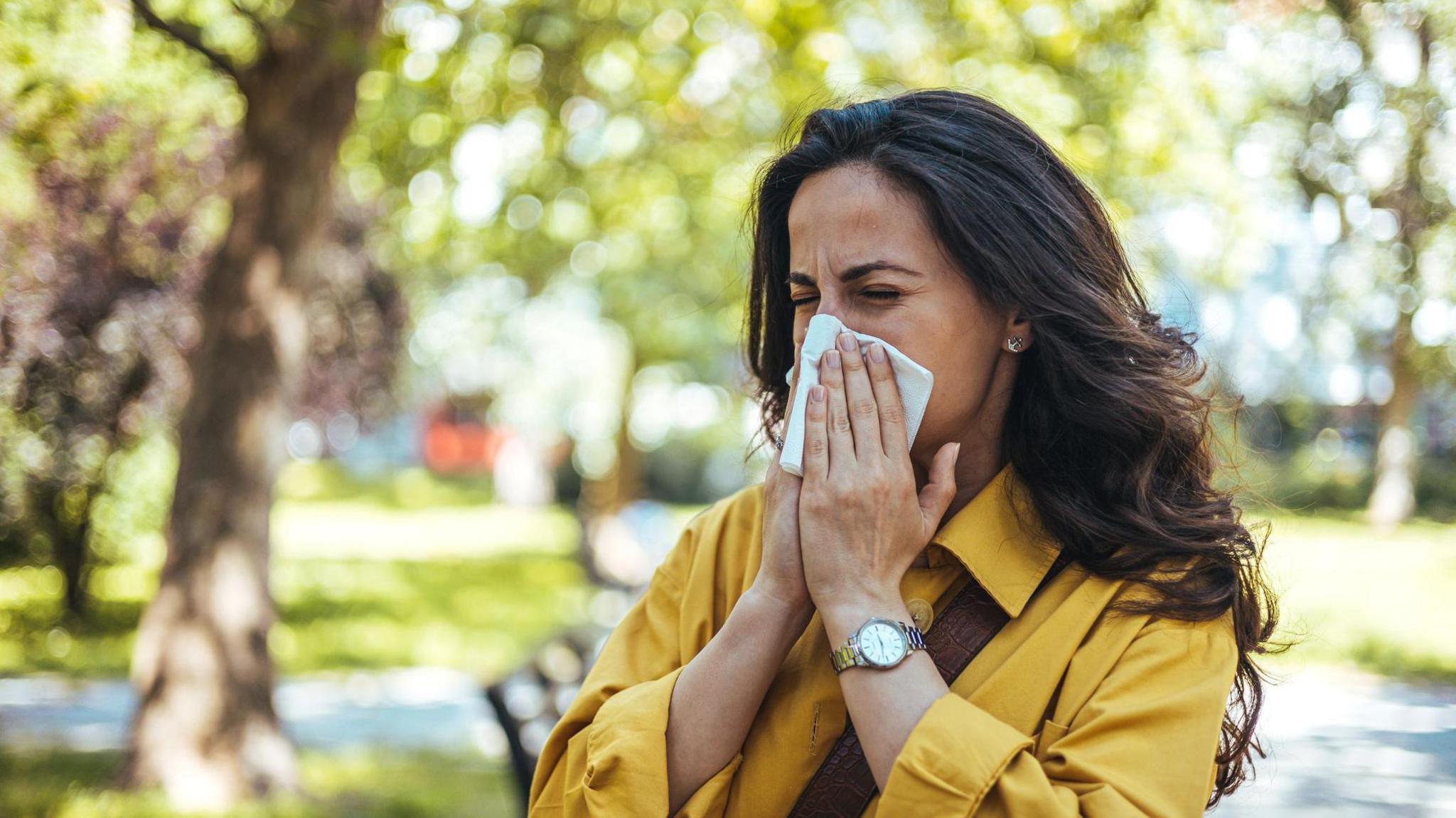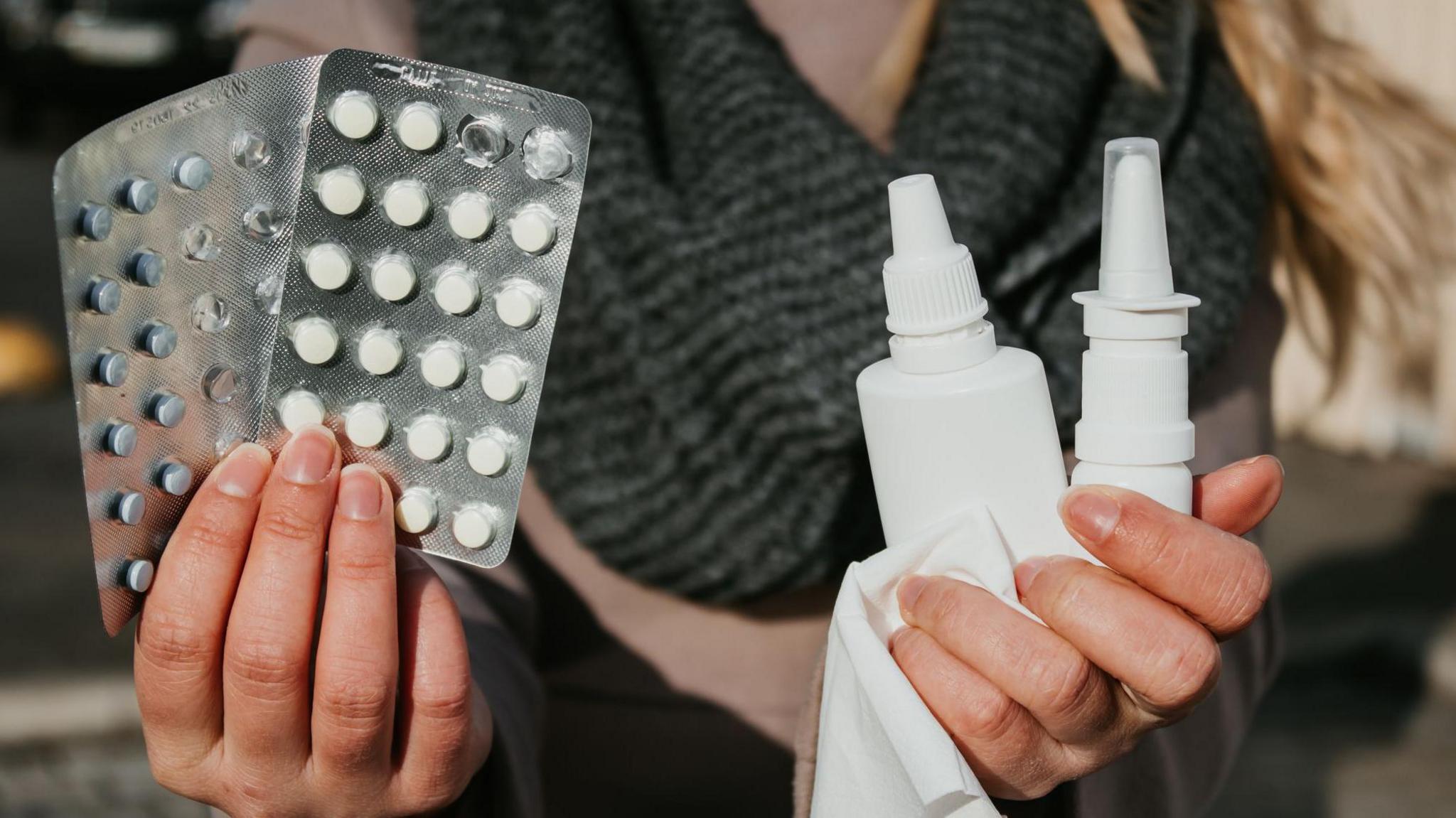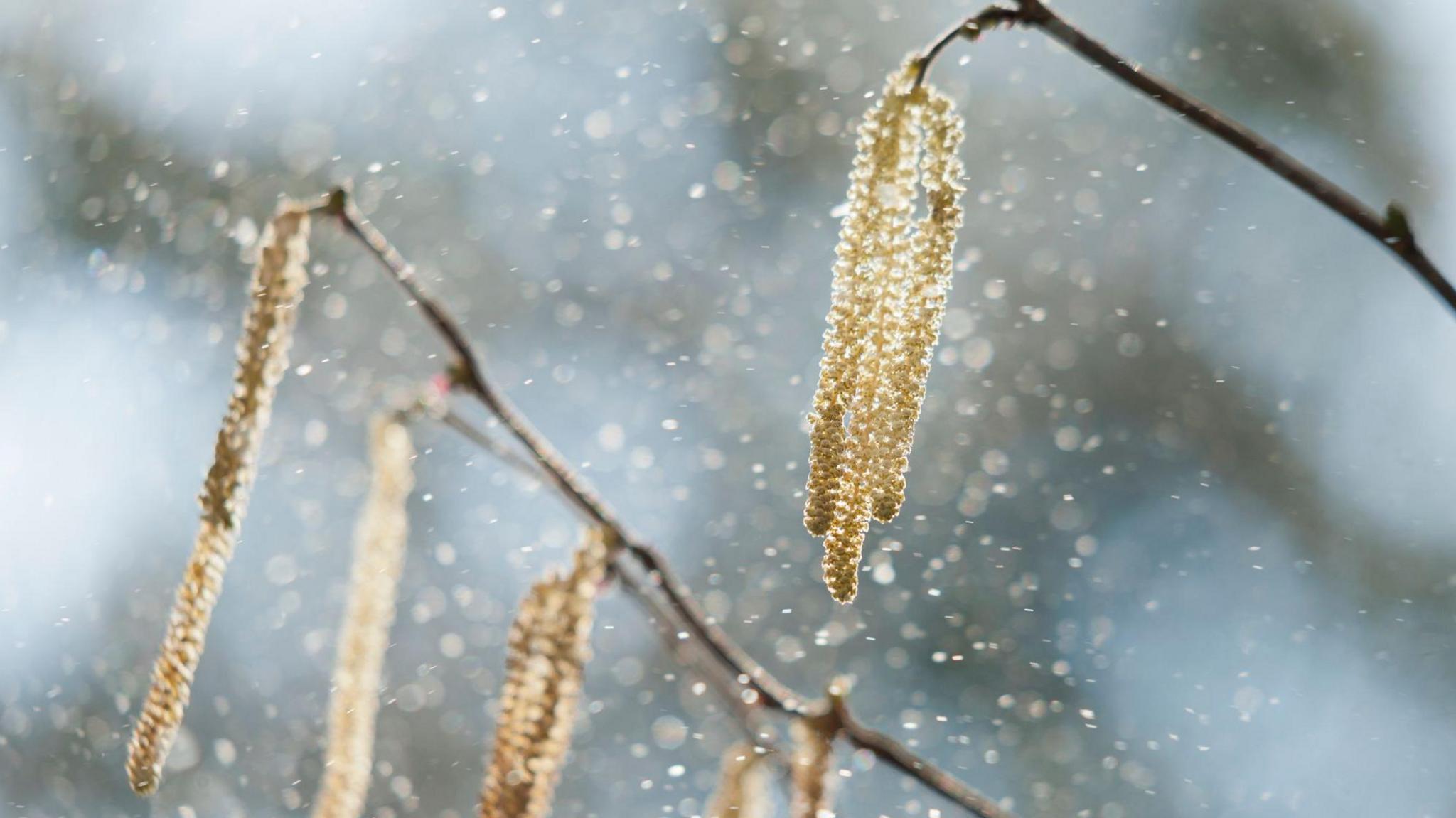Why are pollen levels making hay fever so bad this year?

- Published
Pollen levels are forecast to be high or very high in many parts of the UK over the coming days.
The fine powder released by certain grasses, trees and plants can cause chaos for those who are allergic to pollen.
What are the main symptoms of hay fever?
Itchy eyes, sneezing, dripping noses, scratchy throats, disrupted sleep and headaches are all signs of hay fever.
Around one in five people are allergic to pollen and the main culprit is usually grass, although trees can also trigger symptoms.
Early summer is often peak pollen season, when the number of grains of pollen in the air multiplies.
The warm weather seen in the UK in 2024 and in the first half of 2025 means conditions have been ideal for birch tree pollen - a major hay fever trigger.
Warm, dry days help spread pollen through the air, creating what's been dubbed a "pollen bomb".
Cities often have lower pollen counts than in the countryside, but the pollution in urban areas can actually make symptoms worse.
In the long term, it's likely that the changing climate will also have an impact on hay fever.
Changing temperatures and rainfall could make the pollen season longer and increase the concentration of pollen in the air.
What are the best hay fever treatments?

There's no cure for hay fever, but there are medicines which can help you feel a bit better.
Allergy expert Professor Stephen Till, from Guy's and St Thomas' Hospitals in London, recommends "a cocktail approach", which means taking:
antihistamine tablets or drops that don't tend to make you feel sleepy and are long acting
a steroid nasal spray, and
eye drops
"They all work in different ways and are all very safe for most people - just go to a pharmacy for advice," Prof Till says.
These products can all be bought over the counter in your local chemist.
Some types work better for some people than others, and prices vary, so it's important to find the one that's best for you.
Antihistamine medicines help dampen down your body's allergic reaction to pollen. You can start taking them three or four days before pollen counts start to rise.
One idea is to keep a diary of symptoms and medicines, so you can tell the pharmacist what you've already tested out.
What else can I do to reduce hay fever symptoms?
Avoiding hay fever triggers is essential too, says pharmacist Ashley Cohen from Leeds.
"I always say it's about good hygiene - pollen sits on your face and arms when you go outside, so have a shower and change your clothes when you come in."
And he warns that pets are "brilliant vehicles" for bringing pollen into your house.
The NHS also recommends:, external
putting nasal balm or petroleum jelly around your nostrils to trap pollen
wearing sunglasses, a mask or a wide-brimmed sun hat to stop pollen getting into your nose and eyes
vacuuming and dusting your home regularly
trying out a pollen filter in the air vents of your car
Also, try to avoid:
cut grass or walking on grass
keeping fresh flowers in the house
smoking or being around smokers
drying clothes outside

What if my hay fever gets really bad?
"Ninety percent of people with hay fever can be managed with over-the-counter medication," says pharmacist Ashley Cohen.
If your hay fever becomes really debilitating, your GP can refer you to a specialist - but that will take a while.
Immunotherapy treatment might be available for the worst affected. That's when tiny amounts of pollen are injected into the body over time to get it used to the substance, so that it no longer overreacts.
The NHS stopped offering the steroid injection Kenalog years ago for hay fever because of the risk of serious side-effects.
The charity Allergy UK does not recommend anyone use it either, and private clinics are no longer allowed to advertise the drug.
Does local honey help hay fever?
Most people with hay fever are allergic to grass pollen, whereas bees pollinate flowers and some flowering trees so the pollen in honey is a different type.
Whether local honey made from local bees can reduce hay fever symptoms has been tested - but there's no evidence to show it has any effect.
Clarification 27 June 2025: This article has been amended to clarify that bees pollinate some flowering trees. It had previously stated that they don't pollinate trees.
Heatwaves: The New Normal?
How hot is too hot? From heat labs to firefighting helicopter pilots and wineries, we look at how extreme heat impacts people and environments in the UK.